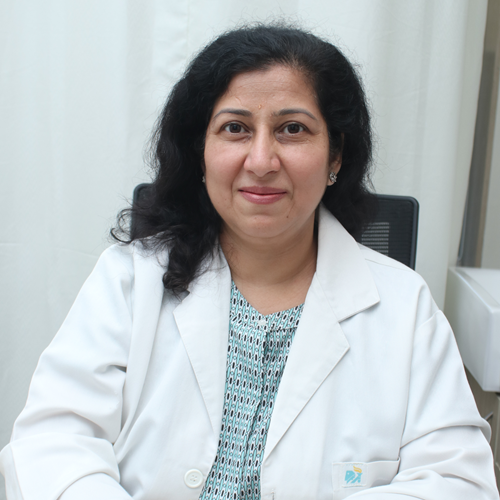What are uterine issues?
The uterus or the womb is where the baby stays and grows in pregnant women. Conditions or problems affecting the uterus or any other part of the reproductive system are known as Uterine issues. Uterine fibroids, uterine prolapse, endometriosis and uterine tuberculosis are some of the most common uterine issues faced by women of reproductive age.
Types of common uterine issues
Although there are many uterine issues and conditions, below are some of the most common.
- Endometriosis
In this condition, the inner uterine lining or the endometrium grows outside the uterus. If the disease has reached the advanced stage, the pelvic organs and the uterus can also be affected. The lining will grow on the fallopian tubes, intestines, ovaries, and even the bladder. This could lead to severe pain during sex and periods and even infertility.
- Uterine Fibroids
Uterine Fibroids or leiomyomas are growths of muscle and connective tissue originating from the uterus wall. Not to worry, these fibroids are non-cancerous. However, for some people, the fibroids can grow as a single nodule or in a cluster or get as large as a watermelon. These fibroids develop within the inside cavity of the uterus or on the uterus's surface. Although some fibroids can be asymptomatic, the large or multiple ones can cause pain, bloody discharge, and pressure in the pelvic area. Since each treatment plan differs depending on the uniqueness of the fibroids, it is suggested that you consult a gynaecologist for a personalized treatment plan.
- Uterine polyps
Uterine polyps are tumours that grow inside the uterus. In about 5% of cases, these polyps can become cancerous growths. It is advisable to remove polyps to avoid future dangerous complications.
Seek help if you experience vaginal bleeding after menopause, bleeding between periods, frequent and unpredictable periods, very heavy periods or infertility. Perimenopausal women or overweight women usually experience them.
- Adenomyosis
This condition involves endometrial tissue growing outside the uterine walls. This could affect one particular area of the uterus or the whole uterus. Since Adenomyosis is difficult to diagnose with just a pelvic exam, many women are unaware of their condition. Symptoms include severe period cramps, heavy blood flow during periods, and pressure or bloating in the pelvic area.
- Pelvic inflammatory disease
Usually caused by an untreated sexually transmitted disease, the pelvic inflammatory disease affects women’s reproductive organs. In some cases, PID penetrates the uterus and affects the uterine tissues. Symptoms of PID include abnormal vaginal discharge (yellow or green), unpleasant vaginal odour, severe pelvic pain, frequent urination, fever, fatigue, and bleeding between periods. Consult a gynaecologist if you face the symptoms mentioned above; if it’s untreated, PID could lead to ectopic pregnancy and infertility.
How are Uterine issues diagnosed?
Your doctor will first obtain your medical and family history in detail. A vaginal exam may be performed to check for abnormalities. You may also have to go through some laboratory tests such as a PAP smear test, and imaging tests such as X-rays, CR scans, sonograms or MRI may also be prescribed.
Uterine issues can lead to many other reproductive issues. At the same time, uterine issues can be caused by STIs, bacteria, family health history, ageing, lower estrogen levels or obesity. It is advisable to consult a gynaecologist sooner than later to manage the disease easily and keep it under check.
Request an appointment at Apollo Cradle, DELHI-NCR - Chirag Enclave. Call 1860-500-4424 to book an appointment.
Treatment for uterine issues depends on the cause of your problem. While some hormonal imbalances can be treated with birth control pills, others may be treated by hysterectomy or myomectomy.
There are no home remedies for uterine issues, and it is suggested that you consult a gynecologist to help you with your condition. Do not use Google or any other unreliable source for remedies and medications. A gynecologist will put you on a personalized treatment plan depending on your case and condition.
Yes, women with uterine issues may experience problems during pregnancy and delivery. The most common issues include the following: 1. Early birth of the baby. 2. Abnormal position of the baby. 3. Detachment of the placenta before delivery. Consult your gynecologist for a delivery plan to be prepared since some women might need cesarean or medications during delivery.
Having a healthy and nutritious diet with regular exercise are some preventive methods. Limit consumption of packaged and processed food, avoid or limit alcohol and salt and increase potassium intake. Prioritize cleanliness and sanitize public toilets before using them.
You should consult a doctor as soon as you spot any symptoms mentioned in the article. Treat your condition before it reaches its advanced stage and causes further dangerous complications.

 95% Patient Satisfaction Score
95% Patient Satisfaction Score




.webp)




.webp)











